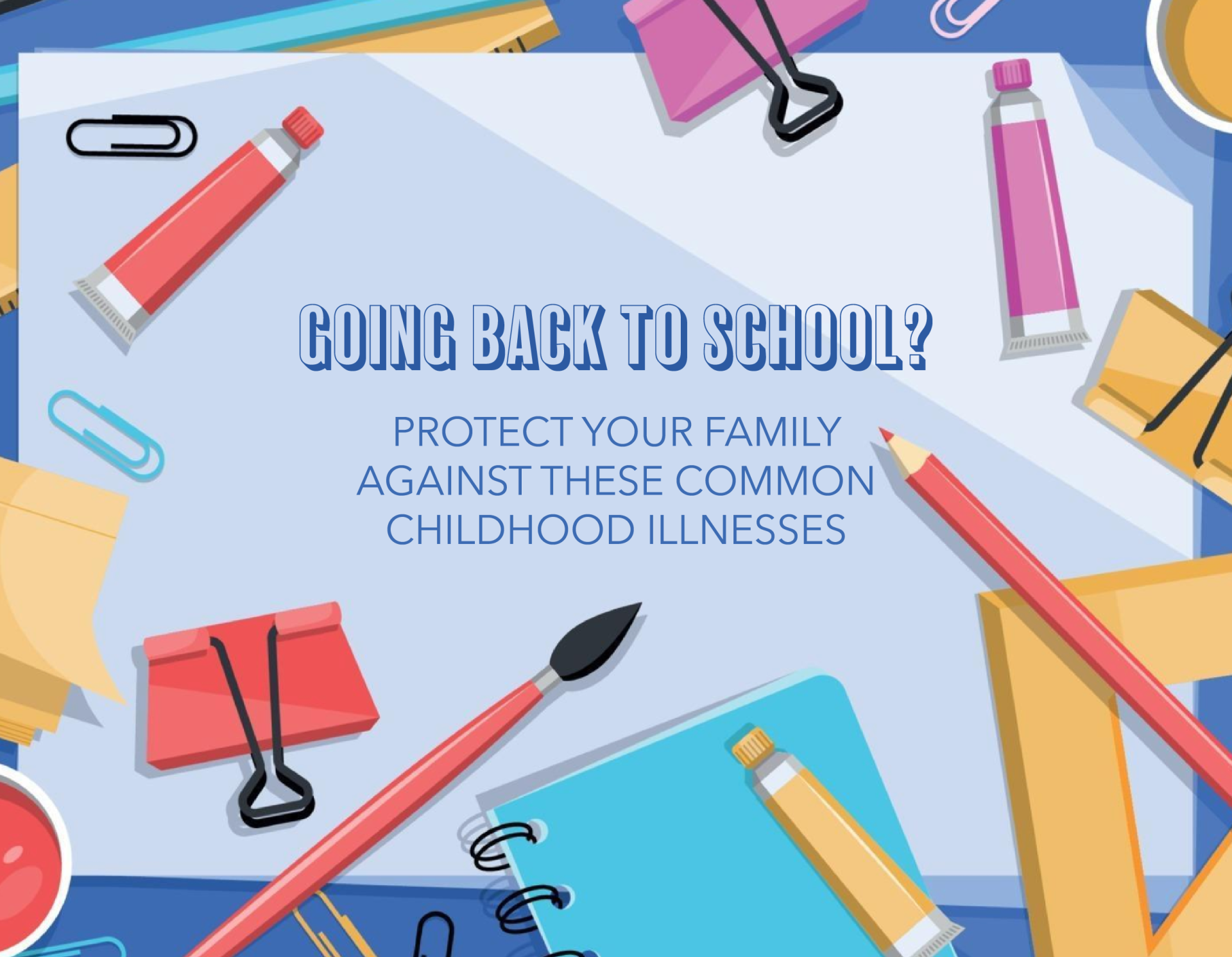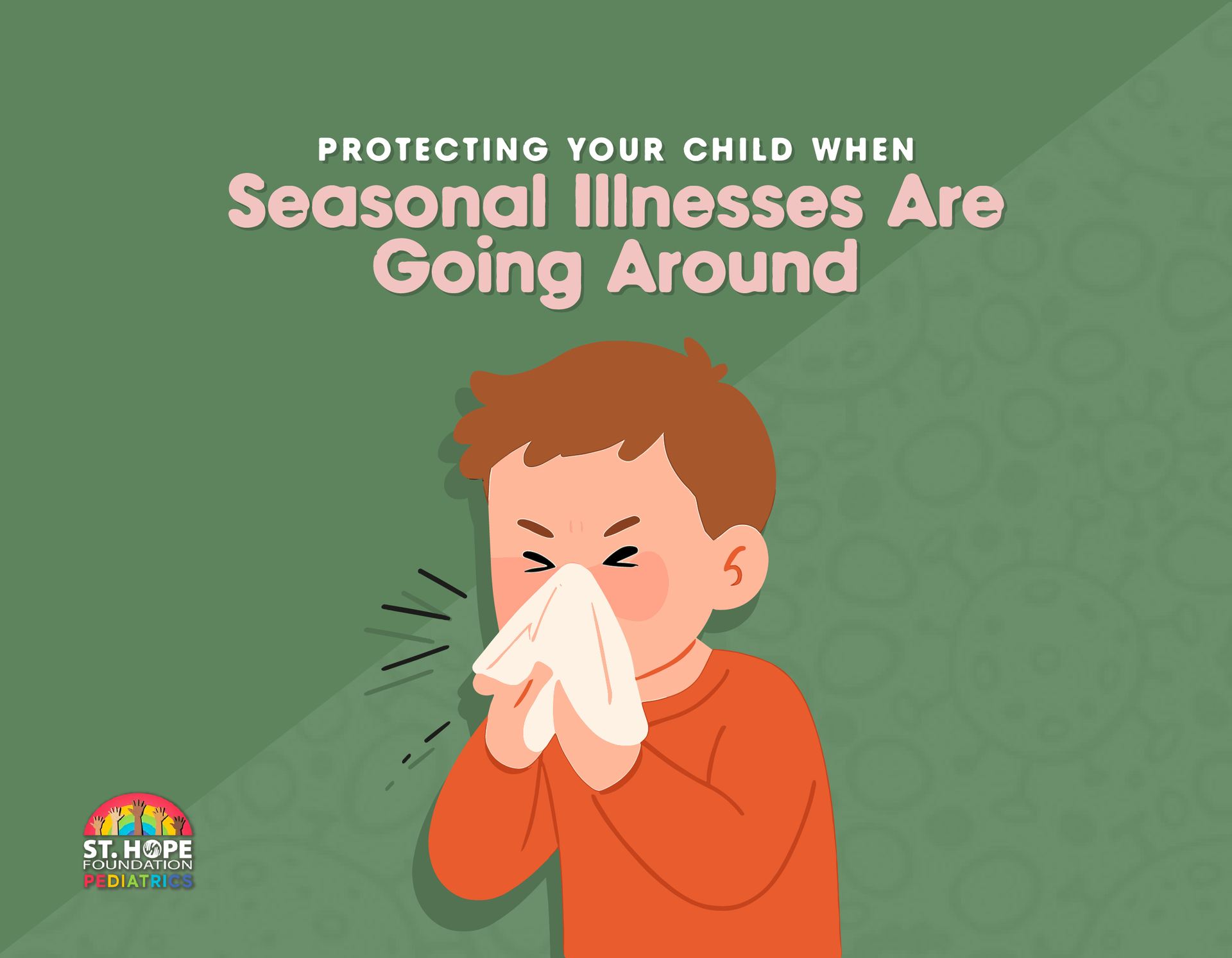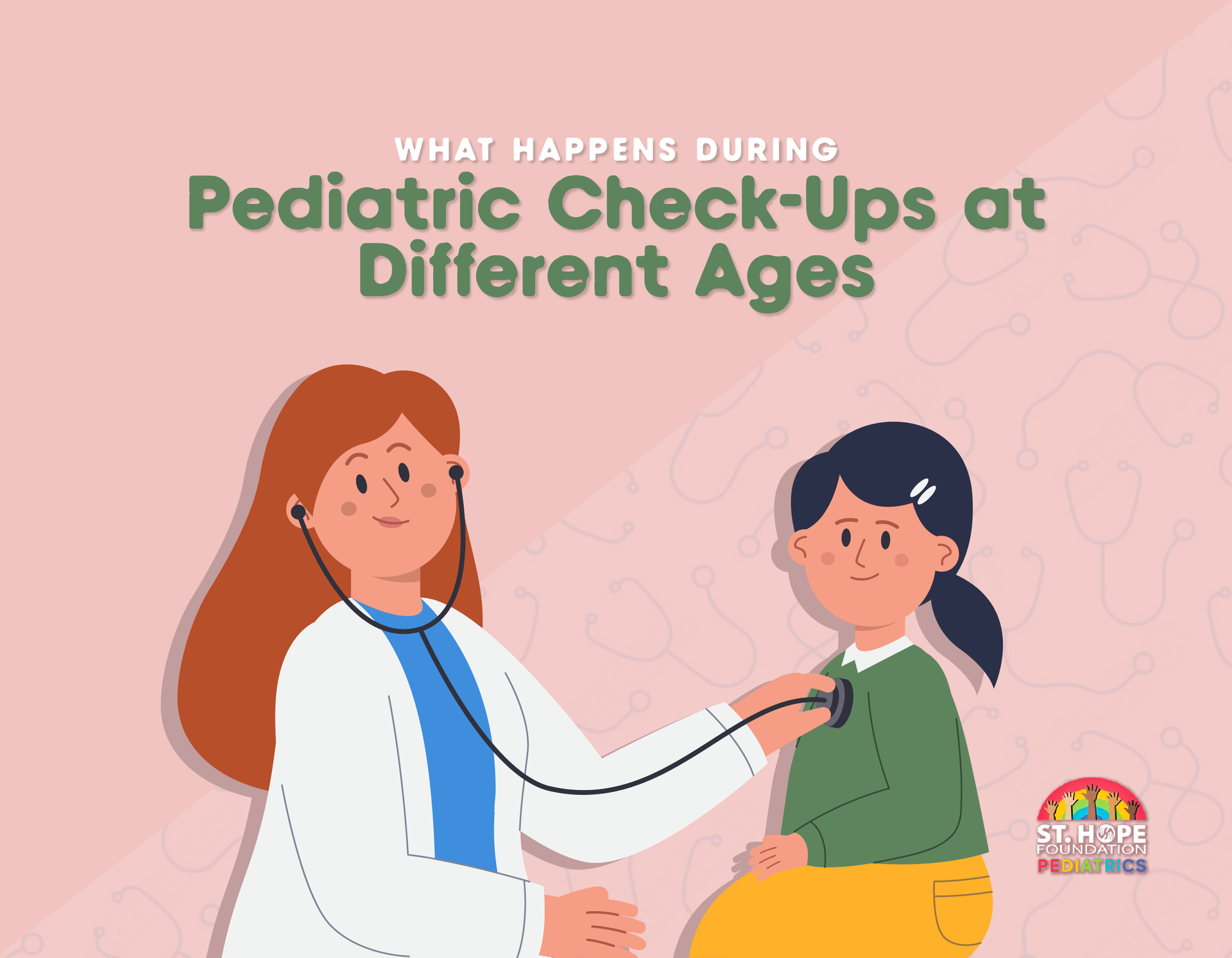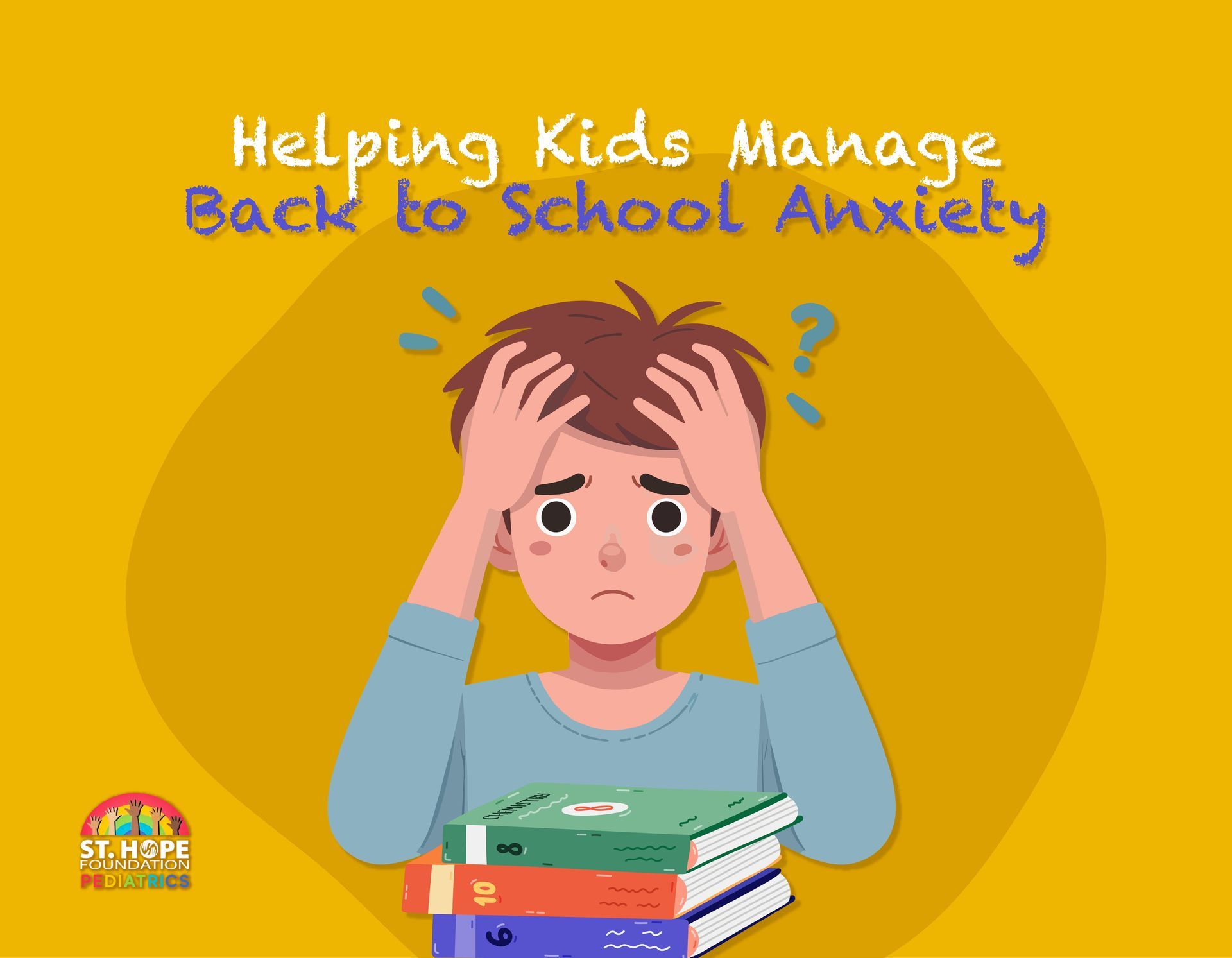
Excitement and nerves are at an all-time high for parents and their kids at the start of a new school year. Returning to the classroom can be a momentous occasion for classmates reuniting after a long summer. It can also be a concerning time for parents as their kids can be exposed to common, easily transmissible childhood illnesses upon going back to school.
The reality is that back-to-school sicknesses are inevitable. While you cannot prevent your child from being exposed to common classroom bugs, you can teach them how to avoid spreading germs. Doing so can help minimize the risk of infection and keep your child healthy and in school.
The first step to protecting your family from back-to-school illnesses is knowing what to expect.
Six Common Back-to-School Sicknesses
- The common cold is an extremely contagious sickness that spreads through airborne droplets or physical contact either with an infected surface or a classmate. The symptoms of a common cold are a runny nose, sore throat, fever, coughing, body aches and loss of appetite.
- Prevention: Tell your child to wash their hands frequently and avoid contact with a sick classmate.
2. Pink eye is a common eye infection in children caused by bacteria, viruses, allergens or irritants (i.e., dirt or chemicals). It is only contagious if the infection is caused by a bacteria or virus. The symptoms of pink eye include redness and swelling of the eye(s), crusty eyelids or eyelashes and watery eye(s).
- Prevention: Advise your child to avoid touching their eyes and wash their hands with soap and warm water.
3. The stomach flu (gastroenteritis) is an infection caused by a virus, bacteria or parasite that leads to inflammation in the stomach and intestines. It typically lasts one to two days (or more) and can be treated at home with lots of fluids and rest. The symptoms of the stomach flu are vomiting, diarrhea, nausea and stomach cramps.
- Prevention: Tell your child to wash their hands and avoid putting their hands and fingers in their mouth.
4. The seasonal flu (influenza) is a highly contagious respiratory infection that affects the lungs, nose and throat. The symptoms of the seasonal flu include fever, chills, coughing, sore throat, runny nose, congestion, headache, body aches and tiredness.
- Prevention: Ensure your child gets enough sleep and avoids touching their face. Some parents may even consider taking their kid(s) to get a flu shot.
5. Strep throat is a bacterial infection that can spread easily if children are sharing things like utensils or drinks. A doctor will administer a strep test to confirm if a child has strep throat. The symptoms of strep throat include extreme sore throat, swollen and red tonsils, white patches at the back of the throat, pain while swallowing, fever, headache and tender or inflamed lymph nodes in the neck.
- Prevention: Remind your child to practice good hand hygiene and avoid sharing food or drinks.
6. Head lice are tiny, wingless insects that crawl on the scalp and feed on small amounts of blood. They spread by direct contact or indirect contact through things like hats, hairbrushes or pillows. While they don’t carry disease and they aren’t particularly dangerous, they can cause discomfort. The symptoms of head lice are tiny, red bumps on the scalp or neck and an itching or tickling sensation on the head, neck or ears.
- Prevention: Keep your child home if there is a head lice outbreak at their school.
Tips For Boosting Your Child’s Immune System
- The proper amount of sleep is critical to developing and maintaining a strong immune system. Enforce an age-appropriate bedtime and ensure their bedroom is conducive to sleep (i.e., dark, quiet and free of all screens).
- Minimizing your child’s stress is important for their physical and mental health. Giving your child free time between activities to choose what they wish to do may help alleviate stress.
- A well-balanced diet is crucial to a child’s health and development. Not only does it provide them with the necessary vitamins and nutrients, but it gives their immune system the boost it needs to stay healthy.
If Your Child Does Get Sick
When your kid comes home from school not feeling well, just know it is completely normal and nearly impossible to avoid all illnesses. With each cold or flu your child builds immunity as their body fights off the infection.
If your child is sick with any of the common back-to-school sicknesses, staying home from school, getting enough rest, keeping hydrated and taking any prescribed medications or antibiotics will aid in their recovery.
In the event that your child has a high fever, difficulty breathing or shows signs of dehydration, contact your pediatrician immediately or take them to the hospital if it is an emergency.
Schedule an Appointment with a Trusted Pediatrician in Houston
Whether your child needs to see a doctor for an illness or a well-child exam to ensure they reach optimal growth and development milestones, our team of pediatric specialists at St. Hope Foundation is here to help.
Contact us online or give us a call at (713) 778-1300 to schedule an appointment today.













